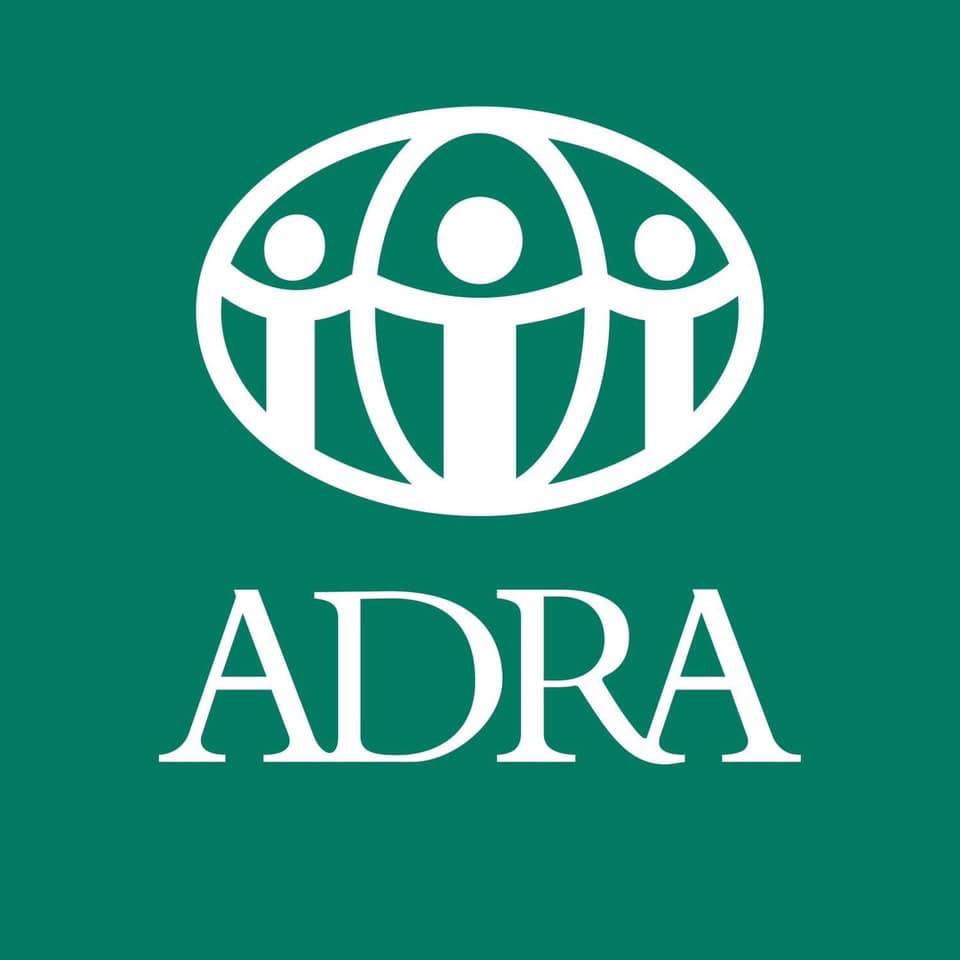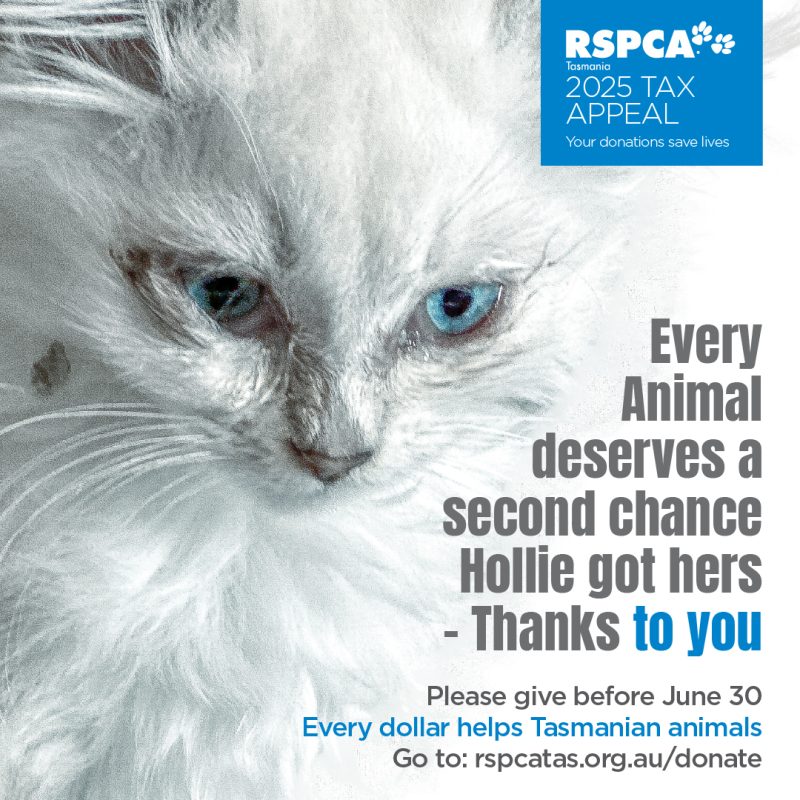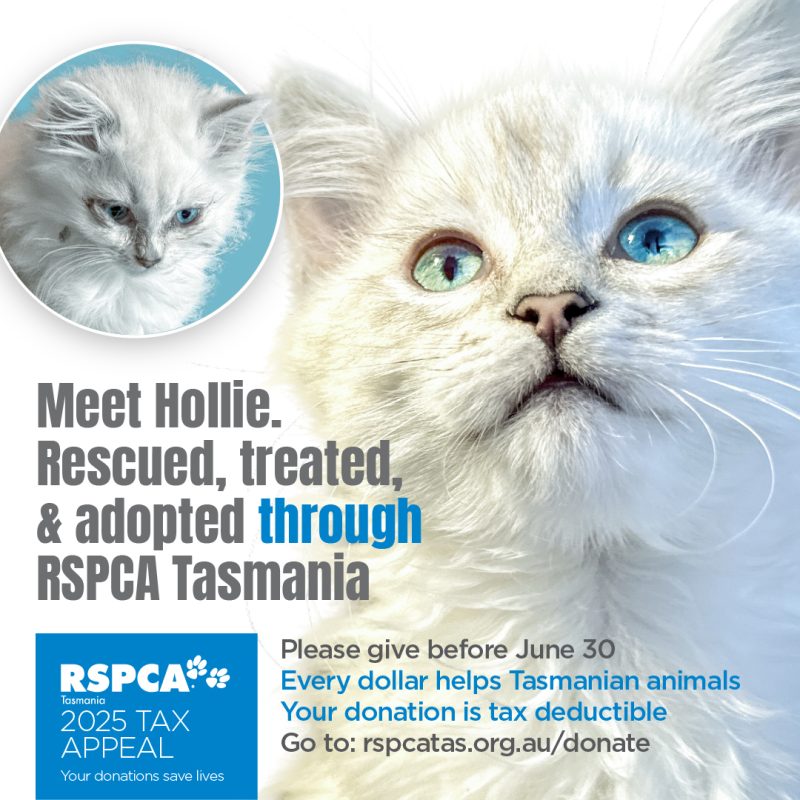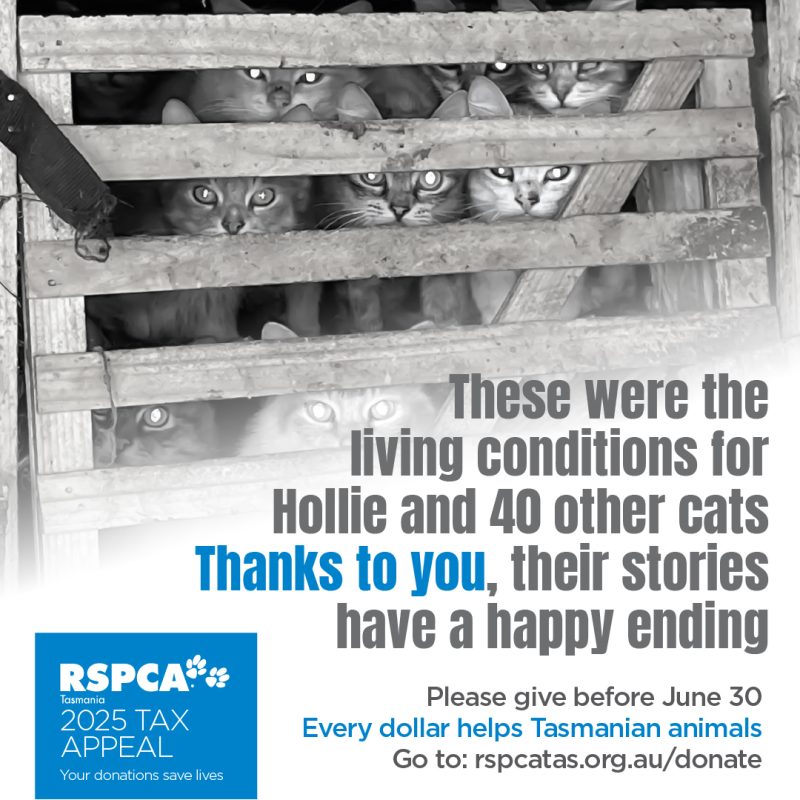The use of pronged collars will be banned, and authorised officers will have greater power to enter properties and seize animals under a range of proposed changes to Tasmania’s animal welfare laws that were tabled in Parliament today.
Other proposals include greater sentencing options for animal cruelty and aggravated cruelty, and reversing the onus of proof so an animal is assumed to belong the person listed as the owner in a welfare complaint.
These changes are intended to start bringing Tasmania up to the standard of other states, where a range of reforms have been ongoing for several years.
RSPCA Chief Executive, Jan Davis, has welcomed the amendments.
“The Tasmanian Animal Welfare Act came into effect in 1993. That’s a long time ago – and the world is a very different place thirty years on. Unfortunately, this legislation has not kept pace with changing community attitudes and expectations,” she said.
“People have an expectation that our animal welfare framework is really strong. They want to be sure that if there is cruelty towards an animal, if animals aren’t being cared for properly, that we have the good legislation in place that makes sure that they are held accountable for the decisions they make, and for the actions they take.”
“We’ve worked closely with the state government to bring these amendments forward. The government’s commitment to the changes was evident in the wide community consultation process, which resulted in some further refinement of the proposed amendments, Ms Davis said.
However, Ms Davis said these changes are just the start in making sure that our laws provide Tasmanian animals with the best possible protections.
“In many states we’ve seen incremental improvement to animal welfare legislation. In some states we’ve seen clean sheet rewrites,” she said.
“We’re working on both at the moment.
“It is important to move our current act towards best practice. However, while we’re doing that, we also need to be thinking about what animal welfare legislation might look like in another thirty years. Recognising that animals are sentient is a high priority, as is widening the scope of other legislation to reflect the importance of the relationships people have with their companion animals in ensuring better physical and mental wellbeing.”
Once these amendments come into effect, RSPCA Tasmania is hoping to see further reforms to crack down on puppy farms and online scam sales.
MEDIA CONTACT
Jan Davis, CEO – RSPCA Tasmania
Mobile: 0409 004 228
Email: jdavis@rspcatas.org.au


























